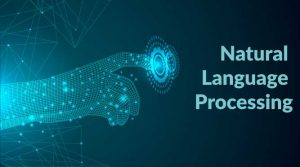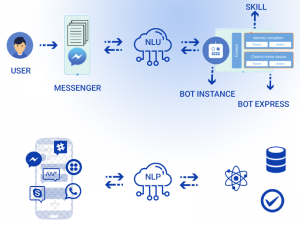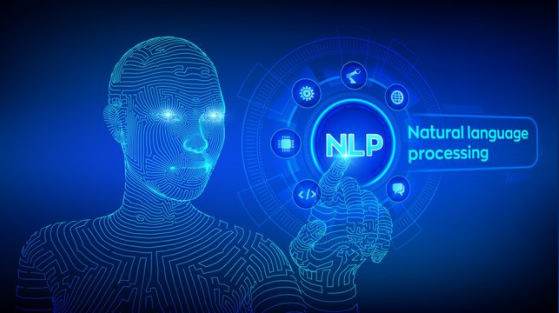Natural Language Understanding is an AI that helps humans to interact with computers using natural language. The use of NLU in computers has come a long way, with many systems using these tools to provide a better user interface for humans.
Communication with computers and their aided devices has come a long way. From textual command inputs via keyboards and mouse to voice and touch inputs found in the majority of mobile devices and desktops today, the way we interact with the computer has changed drastically. The latest advancements have also paved the way for more exciting avenues in UI, including brain mapping, gesture mapping, augmented reality, etc. And one such advancement is NLU (Natural Language Understanding).
What is Natural Language Understanding?


How would it be if we could simply communicate with the computer as we would communicate with a normal person? Natural language understanding aims to achieve that. This artificial intelligence (AI) interprets any kind of text or unstructured data with the help of appropriate computer software. This means NLU can help interpret a text or data to computer language and then translate the output from the computer to a language that humans can understand easily.
While this may sound normal, the difference lies in the way humans get to interact with the computer. For instance, while you would have been forced to use structured sentences to communicate with the computer before, you can interact with computers using natural sentences with the help of NLU.
Difference Between Natural Language Understanding and Natural Language Processing



People tend to confuse NLU with Natural language processing (NLP). NLU does belong to a part of NLP and can be considered as a subset of the latter when it comes to the part of understanding and comprehending user language.
The difference lies in the fact that NLU aims to interpret the meaning of sentences communicated by the user rather than sentences themselves. It plays the part of distinguishing between phrasings, vocabularies, mispronunciations, etc. to capture the essence of the sentence. It does this by making use of several processes like sentiment analysis, text categorization, content analysis, etc. to help the computer understand different inputs.
NLP differs from NLU in the fact that it encompasses the entire process of transforming unstructured data into the structured one. It helps users communicate with technology or establish a natural human conversation with the same to answer questions or accomplish tasks.
Examples of Natural Language Understanding
Here are a few examples of the applications of Natural Language Understanding in today’s world.
Machine Translation –
One of the hardest challenges of NLU is the translation of speech or text from one language to different languages. However, several game-changers like Microsoft Translator, Google Translator, Facebook Translation, etc. have made use of NLU’s algorithms utilizing AI machine training tools and linguistic rules to create state-of-the-art generic language translation tools. These machine translation tools allow you to simply type any text or upload an entire document to translate them to several languages. Tools like Google Translate take things a step ahead by extracting, reading and translating text from images using OCR (optical character recognition) software.
Automated Reasoning –
NLU helps machines adopt automated reasoning tactics to provide logical inferences and conclusions. It allows these machines to provide facts based on deductions via reasoning and logic using “IF-THEN” and similar rules. Take the medical field for example. A computer can be programmed to make use of “IF-THEN” rules to derive conclusions and diagnoses for medical cases based on previous diagnoses inferred for similar cases.
Speech Recognition –
Speech recognition is a part of NLP, which makes use of NLU tools to aid computers in understanding natural language speech. It helps humans interact with computers using natural sentences, with the computer using NLU algorithms and tools to decipher the meaning of the sentences and respond accordingly. For example, instead of asking Google Assistant a question like “Weather Today,” you can naturally ask the question, “What’s the weather outside today?” NLU will split the sentence into different parts and group each part under a different topic like the date (today), topic (weather), etc. It would then proceed to provide the most accurate answer from an online database of “natural language documents” like reference texts, web pages, online news reports, etc.
Language Translation –
Language translation is a headache when it comes to understanding the flow of sentences in different languages. It is hard to opt for straight translation of languages from one form to another, as the order of words in a sentence would not be the same for every language, meaning the translation tool would have to restructure the sentence while translating it from one language to another. While translation tools used to overlook this fact, the newer translation tools use NLU to translate languages accurately with a few or no grammatical errors. This can be a boon when it comes to communicating with individuals in different languages. The newer NLU tools also translate inputted text to different languages, altering the structure of the sentence accordingly as well. For more Contact Eligocs






